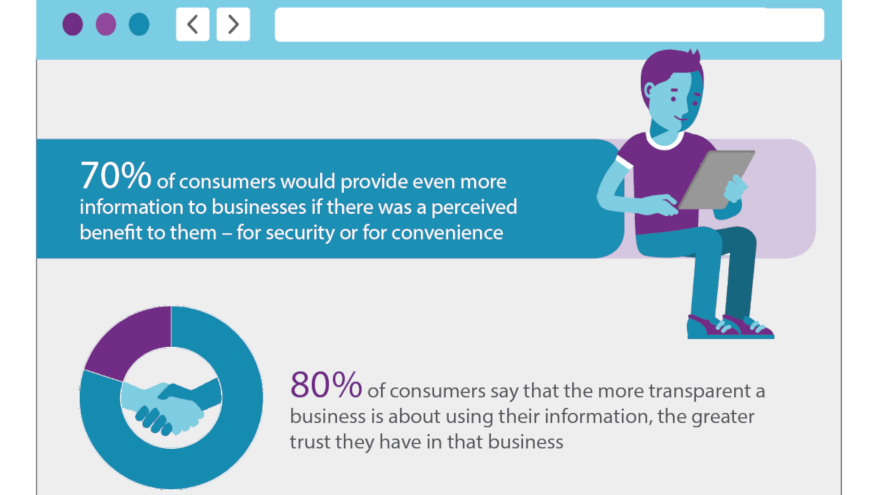NACHA highlighted the ACH Network, an electronic payment system that safely and reliably moves tens of billions of payments annually, generated another milestone in 2018.
Officials indicated payment volume climbed by almost 1.5 billion payments, marking the fourth straight year the ACH Network has added more than 1 billion new payments.
NACHA said the ACH Network volume reached nearly 23 billion payments in 2018, a year-over-year increase of 6.9 percent and the highest growth rate since 2008. That’s nearly 70 payments for every person in the U.S.
The value of ACH payments in 2018 was $51.2 trillion, a 9.5-percent increase over 2017. It marked the sixth consecutive year in which the ACH payment value has risen by at least $1 trillion. For perspective, the value of last year’s ACH payments was more than two-and-a-half times that of the nation’s 2017 gross domestic product.
Officials went on to mention same-day ACH volume soared in 2018, the first full year with same-day debits as well as credits. There were nearly 178 million same-day ACH payments last year: 98.3 million credits and 79.7 million debits.
Overall, same-day ACH volume jumped 137 percent from 2017. Total same-day ACH value in 2018 was $159.9 billion, up 83 percent over the previous year.
“The results for 2018 make clear that the ACH Network is vibrant and continues to be a vital component of the nation’s economic engine,” NACHA chief operating officer Jane Larimer said.
“With more enhancements to same-day ACH being rolled out this year and next, the experience for businesses and consumers will only get better,” Larimer continued.
NACHA noted several core ACH use cases saw substantial growth in 2018 including:
• Business-to-business (B2B) payments rose 9.4 percent to 3.6 billion with a total value of $34.9 trillion.
• Direct deposits climbed 4.4 percent to 6.8 billion for total value of $9.7 trillion.
• Internet payments jumped 14.2 percent to 5.9 billion with a total value of $2.9 trillion.
• Payments from health plans to medical and dental providers increased 11.5 percent to 306.7 million with a total value of $1.59 trillion.
• Person-to-person (P2P) payments spiked 32.2 percent to 128.7 million for a total value $209.6 billion.
GM Financial is enhancing its efforts to ensure the individuals signing contracts with the captive are in fact who they say they are.
This week, GM Financial announced its collaboration with Spring Labs as part of its Spring Founding Industry Partners (SFIP) Program, which is geared to drive improved data management standards to help address critical auto finance industry issues like identity verification and synthetic identity fraud.
The SFIP program brings together financial institutions, data furnishers and technology partners to collaborate on research, development and implementation of Spring Protocol, the company’s blockchain technology network, prior to its public launch. Ultimately, this network is designed to transform how information and data are shared globally.
“As the captive finance arm for General Motors and one of the world’s largest auto finance providers, we are continually innovating and evolving our fraud prevention and detection capabilities to better serve and protect our customers and dealers,” said Mike Kanarios, chief strategy officer at GM Financial.
“Today’s announcement underscores our commitment and investment to advance these efforts, and we are pleased to collaborate with Spring Labs as a member of the SFIP program,” Kanarios continued.
Spring Labs chief executive officer Adam Jiwan added, “We are excited to partner with GM Financial to create solutions on our developing network to address vexing economic problems such as identity fraud.
“We look forward to announcing additional significant partnerships in due course,” Jiwan went on to say.
Editor’s note: More details about what’s happening at GM Financial will be showcased in an upcoming episode of the Auto Remarketing Podcast, featuring Kyle Birch, who is the company’s executive vice president and chief executive officer for North America. Previous episodes are available here.
How fintech is going to be the technological solder that binds dealerships, finance companies and consumers into an even stronger relationship permeated discussions at a host of annual automotive events late last month in San Francisco.
Cherokee Media Group is looking to continue that dialogue in a more intimate conference setting when it again hosts the Automotive Intelligence Summit, which aims to give leading experts in the auto fintech space the opportunity to reinforce the need for collaboration to strengthen current revenue streams and open new ones.
“Last summer’s first Automotive Intelligence Summit poured a great foundation for industry dialogue we heard for the remainder of 2018 and into the opening portion of this year,” Cherokee Media Group president Bill Zadeits said. “And we want this year’s Summit to extend that conversation where dealerships, finance companies, fintech entrepreneurs, investors and related experts all can let their voices be heard in an interactive setting that delivers more than just talking points, but also tangible strategy to lift the entire industry.”
The Automotive Intelligence Summit again will be in Raleigh, N.C., in the heart of North Carolina’s Research Triangle. Nestled among some of the most successful technological companies and leading universities, attendees will be gathering in the Tar Heel State capital on July 23-25 for a mix of keynote presentations and networking opportunities.
Last year, experts from an array of successful firms participated, including:
— Ally Financial
— Cox Automotive
— defi SOLUTIONS
— DRN
— Experian
— EY
— Fair
— Hudson Cook
— IBM
— IHS Markit
— KAR Auction Services
— Maryann Keller and Associates
— National Automobile Dealers Association
— SAS
These leading authorities shared not only what’s happening within their shops, but also provided projections about ways fintech might influence how dealerships and finance companies gain new customers as well as retain current ones.
Cherokee Media Group is already accepting applications to speak this summer’s event. Applications can be completed here.
“We are looking to provide the platform for the most innovative companies, experts and executives to showcase what is going to impact our businesses so the industry can remain nimble and address potential challenges,” Zadeits said.
“We all know fintech development is in constant motion,” he continued. “The Automotive Intelligence Summit will provide a pathway for growth for the remainder of 2019 and beyond.”
For more details about the Automotive Intelligence Summit, go to www.autointelsummit.com.
Carvana already boasted a strong relationship with Ally Financial to help the e-commerce platform for buying and selling used vehicles.
And on Wednesday, Carvana confirmed it now has a connection with Bank of America, too.
According to a news release, the Bank of America digital car shopping and financing platform will now add more than 15,000 Carvana Certified vehicles to its existing inventory of both new and used vehicles available via dealers across the country.
“We always want to give our customers an exceptional experience, whether they finance with Carvana or work with their own banks,” Carvana founder and chief executive officer Ernie Garcia said.
“We look forward to introducing even more Bank of America customers to the new way to buy a car now that they can apply their Bank of America financing to our vehicles on the bank’s digital car shopping platform,” Garcia continued.
Customers simply can visit Bank of America’s digital shopping tool from a computer or mobile device. Once there, they can select a Carvana vehicle, submit an application to Bank of America for immediate financing terms, finalize the transaction on Carvana.com and even trade-in their current vehicle, all in as little as 10 minutes.
Buyers purchasing a Carvana vehicle can take advantage of Carvana’s as-soon-as-next day delivery and complete their purchase and financing tasks without leaving the comfort of home.
“We launched Bank of America digital car shopping to offer our clients a more convenient and transparent experience – from searching vehicles and dealerships to qualifying for financing all from a desktop or mobile device,” said David Hollodick, senior vice president of consumer vehicle lending at Bank of America.
“With Carvana vehicles added to our platform, our clients can take the process one step further and finalize a purchase without ever leaving home. We are delighted to bring this unique experience to more of our clients,” Hollodick continued.
All Carvana vehicles listed on Carvana.com and on the Bank of America car shopping platform are Carvana Certified, meaning they have all undergone a 150-point inspection, have no frame damage and have never been in a reported accident. Features, imperfections and updated information about open safety recalls are listed on the unit’s vehicle description page.
Additionally, every Carvana vehicle comes with a seven-day return policy, giving the customer the time to ensure the vehicle fits their life.
“Whether it’s installing car seats or testing the turning radius in a tight parking garage at work, it’s an upgrade to the traditional four right-hand turns around a dealership block,” Carvana said.
Whether a consumer is buying a personal care item costing just a few bucks or financing a vehicle purchase involving thousands of dollars, Experian insisted that digital commerce has changed the way consumers interact with businesses. Experts see how commerce is moving from face-to-face transactions to anonymous relationships built on trust.
Difficult to achieve and earned over time, Experian sees trusted online relationships are based on businesses providing a secure environment and a great customer experience.
In light of that backdrop, Experian’s Global Identity and Fraud Report found that 74 percent of consumers see security as the most important element of their online experience, followed by convenience.
While businesses often have invested in one at the expense of the other, Experian discovered that consumers across the globe expect both. So much so that 70 percent of them are willing to share more personal data with the organizations they interact with online, particularly when they see a benefit such as greater online security and convenience.
“Security and convenience are the bedrocks of a dynamic digital marketplace that effectively manages risk and delivers a seamless experience,” said Steve Pulley, Experian’s executive vice president and general manager of global identity and fraud solutions.
“The availability of information consumers share with businesses makes this possible, but it’s the same information that puts them at a greater risk for fraud, making trust more important than ever,” Pulley continued.
Findings from the study also reveal that consumers and business leaders agree that security methods enabled by new technologies and advanced authentication solutions instill online trust.
In fact, consumer confidence grew from 43 percent to 74 percent when physical biometrics was used to protect their accounts.
Experian learned that businesses also are beginning to embrace the changing technology. Half of organizations globally reported an increase in their fraud management budget over the past 12 months.
“Trust begins with a business’s ability to deliver more from the information they already have and to use advanced technologies to identify their customers and provide a relevant experience without increasing their risk exposure,” Pulley said.
“In other words, consumers really can expect both — security and convenience.”
The report went on to discuss how many businesses are proactively sharing with customers how they use their personal information. The report found that nearly 80 percent of consumers say the more transparent a business is about the use of their information, the greater trust they have in that business.
The report revealed that 56 percent of businesses plan to invest more in transparency-inspired programs such as educating consumers, communicating terms more concisely and helping consumers feel in control of their personal data.
To develop the study, Experian interviewed more than 10,000 consumers and more than 1,000 businesses across 21 countries around the world.
Additional findings from the third annual fraud report include:
• Fifty-five percent of businesses reported an increase in fraud-related losses over the past 12 months, particularly account opening and account takeover attacks.
• Sixty percent of consumers globally are aware of the risks involved with providing their personal information to banks and retailers online.
• Ninety percent of consumers are aware that businesses are collecting, storing and using their personal information.
• Banks and insurance companies are the organizations trusted most by consumers across most regions. Online retail sites and social media sites trail considerably on trust.
• Nearly nine out of 10 consumers report conducting personal banking as their top online activity.
• Passwords, PIN codes and security questions remain the authentication methods most widely used by businesses, followed by document verification, physical biometrics and CAPTCHA.
The Global Identity and Fraud Report also shows how different regions across the globe view and manage fraud:
• Concern for fraud and increased fraud losses are highest among businesses in the U.S.
• The greatest number of consumers who already have experienced a fraudulent event online are in the U.S., with the lowest number of consumers from EMEA.
• The U.S. and the U.K. lead with the biggest increase in fraud management budgets over the past 12 months, with three-quarters of businesses budgeting more for fraud management this year.
• Latin America is a top user of advanced authentication technology where CAPTCHA, physical biometrics and customer identification programs make up the top three authentication methods. This differs for businesses in other regions, which rely more heavily on passwords, PIN codes and security questions.
• Physical biometrics seems to have the largest positive impact on trust, particularly in Colombia and the U.S.
• The U.S. has invested the most when it comes to transparency initiatives in the past 12 months, and Colombia has the highest intent to invest more in the next six months.
Experian’s identity and fraud business comprises more than 300 fraud experts around the world working to protect people’s identities and fight fraud for businesses across multiple sectors, including financial services, telecommunications, retail/e-commerce, insurance, government and healthcare.
The full Global Identity and Fraud Report can be downloaded here.
Since blockchain is establishing its presence in the automotive sector, strategy and marketing consultancy Simon-Kucher & Partners projected after dissecting recent study findings that the revenue potential for this technology could ramp up to be nearly $120 billion by 2030.
Simon-Kucher orchestrated a survey to delve deeper into what’s prompting car owners and other road users to be interested in the many ways in which blockchain can be used to create revenue opportunities. The firm learned that survey participants were particularly interested in time-saving solutions such as traffic congestion management (48 percent) and automated payments (54 percent).
The firm’s newest blockchain research also mentioned applications that provide added security such as protected data access (50 percent), enable increased efficiency such as automated payments (54 percent), or greater convenience such as remote access (46 percent) were also popular with participants.
“The added value of blockchain applications for the end customer is obvious,” said Peter Harms, a partner in Simon-Kucher’s global automotive practice. “Automakers need to be aware that they can generate significant profit from these applications.”
The study also revealed how much drivers would be willing to pay each month for various blockchain solutions:
—Traffic congestion management: 27 percent of survey participants would be willing to pay on average $11 per month for this solution
— Protected data access: $11 (7 percent)
— Remote control of vehicle (such as locking/unlocking): $8 (12 percent)
— Automated payments (such as at parking or charging stations): $7 (17 percent)
— Immutability of vehicle records (when buying a used vehicle): $6.00 (7 percent)
Based on these figures, Harms computed that total revenue generated by 2030 is set to reach $120 billion.
“The added value of blockchain solutions and customer willingness to pay for them already indicate enormous monetizing potential,” Harms said. “Now is the time for the automotive industry to start adjusting its strategies and business models, not only to expand their current offerings with blockchain solutions but also to monetize them.”
To accomplish this feat, Harms pointed out industry-wide infrastructure is required.
“Close cooperation among individual stakeholders (e.g. automotive manufacturers, taxi companies, municipal corporations, toll operators) is essential to unlock the multi-billion-dollar potential of this technology,” he added.
The study titled, “Blockchain in the Automotive Industry,” was conducted worldwide in October by Simon-Kucher & Partners. It surveyed various factors, including participants’ level of awareness of blockchain, future areas of application in the automotive industry, and willingness to pay for individual applications.
Founded in 1985, Simon-Kucher & Partners has more than 30 years of experience providing strategy and marketing consulting with a focus on top-line power. The firm has more than 1,200 employees in 38 offices worldwide.
With the vehicle-financing process in constant evolution, the demand for dealerships and finance companies to handle consumer concerns is growing, too.
A new commissioned study conducted by Jabian Consulting on behalf of Equifax confirmed that dealers and finance companies alike believe more consumer education, access to data and faster processes will help enhance the vehicle-buying journey.
The study’s goal was to evaluate what dealers and finance companies want to stay and/or remain competitive amid changing consumer buying behaviors.
The study found that universally both franchise and independent dealers want to predict and understand consumer behavior by enabling early engagement online, and leveraging consumer information (trade/buying habits) to help power the consumer purchase. Both dealers and finance companies across the credit spectrum want to engage ahead of the showroom through more guided marketing to better match customers with vehicles during the research process, and ensure the right inventory when the customer arrives at the dealership.
Finance companies cited more insights to engage with consumers before they enter the sell phase at the dealership to inform them on financing to provide a more confident shopping experience.
Additionally, desire for a more educated consumer also came out of the research, for dealers, which highlighted that a customer educated with the right information was better for the dealership and sales process than a customer that was entering the process with negative perceptions or inaccurate information.
Ultimately, the study showed both dealers and finance companies recognize the need to create a more personalized shopping experience.
As an example, a recent Cars.com study revealed that seven out of 10 consumers are undecided about make and model when they shop for a new vehicle, yet nearly all online car search experiences force people to select make or model as the initial step in their research rather than first understanding their unique needs to offer suggestions specific to their desires.
Dealers and finance companies were looking to more analytic and predictive insights to help get them ahead earlier in the process, and proactively offer up the vehicles a consumer was most likely to select.
“The end goal is helping auto dealers and lenders connect the dots with technology for faster adoption and implementation of solutions that ultimately make the consumer buying experience more personalized, efficient and successful,” said Chad McCloud, executive director at Jabian Consulting.
“Solutions like analytic insights and consumer verification accelerate that experience in a positive way,” McCloud continued. “The good news is that many of these customer-centric solutions already exist, and it’s simply a matter of creating and implementing a strategy to maximize their effectiveness.”
Jennifer Reid, vice president of automotive strategy and marketing at Equifax Automotive Services, offered her reaction to the study. Before joining Equifax, Reid spent part of her career working at both dealerships and finance companies, helping consumers secure their transportation.
“When you saw game changers launched last year like Fortellis Automotive Commerce Exchange, and the innovation highlighted at NADA to solve for digital retailing, it provides an opportunity to connect data and leverage analytics much earlier in the process to help fuel tailored, consumer-centric experiences,” Reid said.
“The industry is ripe with intelligence for auto dealers, lenders and the ever-evolving consumer; the key is it needs to be in the right place and connected to deliver the full value,” she continued.
“Equifax has the solutions powered by our investments in technology, analytics and industry expertise to help lead auto dealers and lenders to the next generation of connectedness for an end-to-end relationship with consumers throughout their shopping and ownership journey,” Reid went on to say.
Adopting consumer-centric personalization strategies leveraging predictive insights in the shopping experience has surfaced as a key strategy for successful digital retailing and is top of mind for the dealers and finance comapnies interviewed in the study.
As highlighted in research by CDK Global, 80 percent of car buyers are likely to begin the vehicle-buying process online. Still, 78 percent said they value the in-store dealership experience.
“It’s not just about being earlier, but being connected online and in the showroom,” said Reid.
Reid recently participated in an episode of the Auto Remarketing Podcast discussing the topic further. The episode is available below.
IHS Markit is leveraging its scale in the economic and technological worlds to help banks and finance companies navigate significant accounting changes coming within the next year.
The company announced the launch of its economic and financial scenario solution designed to help banks comply with the Current Excepted Credit Loss (CECL) estimation required under the Financial Accounting Standards Board (FASB) standard going into effect in 2020.
IHS Markit explained that CECL requires lending institutions to calculate expected credit losses using reasonable and supportable forward-looking macroeconomic and financial forecasts and report the losses on a quarterly or monthly basis. The company contends many firms lack the macroeconomic and financial forecasts, historical macro data and tools required to simulate the range of credit loss scenarios required by CECL.
The IHS Markit solution provides eight economic scenarios to help banks estimate future expected credit impairment, understand risks impacting credit losses and comply with the requirements under CECL. The scenarios are produced by the firm’s award-winning team of economists, using its proprietary, widely-respected macroeconometric model, applied by clients for forecasting and compliance purposes for decades.
“Our CECL solution provides the macroeconomic and financial scenarios and historical data to drive a firm’s credit loss estimates, whether produced in house or by a third-party,” said Chris Varvares, vice president and co-head of U.S. economics at IHS Markit. “It delivers eight transparent and comprehensive, probability-weighted macroeconomic and financial scenarios from our proprietary models and is able to be implemented across many vendor platforms firms already employ.”
Specifically, the solution includes:
— National macro and financial data: Historical and forecast data for eight scenarios at a national level
— Regional data: Historical and forecast data for three scenarios covering nine regions, 50 states and the top 100 metropolitan areas
The forecasts are provided over a 10-year horizon and are updated monthly. The scenarios are accessible through the Connect Platform from IHS Markit or able to be implemented across various vendor platforms.
The eight scenarios include the Macroeconomic Advisers by IHS Markit baseline forecast, representing the most likely scenario, three scenarios with better outcomes in terms of near-term growth and four scenarios with worse outcomes.
Among the current scenarios are faster growth/rapid productivity, boom/bust and global slump/financial crisis. Providing seven alternative scenarios can give banks options for choosing scenarios that best fit their needs.
Macroeconomic Advisers by IHS Markit was recently named the most accurate U.S. economic forecaster for 2017 by the Wall Street Journal and Focus Economics. Nariman Behravesh and the IHS Markit U.S. macroeconomic team also received the 2017 Lawrence R. Klein Award for forecasting accuracy.
For more information, managers and executive can listen to a recent webinar hosted by Varvares and the HIS Markit team.
Major consolidation in the fintech space unfolded on Wednesday.
Fiserv and First Data Corp. announced that their boards of directors have unanimously approved a definitive merger agreement under which Fiserv will acquire First Data in an all-stock transaction. The companies said the transaction unites two premier firms to create one of the world’s leading payments and financial technology providers and an enhanced value proposition for its clients.
According to a news release, the transaction, which is expected to close during the second half of 2019, is subject to customary closing conditions and regulatory approvals, including the approval of shareholders of both companies. The transaction is not subject to any financing conditions.
Under the terms of the agreement, First Data shareholders will receive a fixed exchange ratio of 0.303 Fiserv shares for each share of First Data common stock they own, for an equity value of $22 billion. This represents $22.74 based on closing prices as of Wednesday and a premium of 29 percent to the five-day volume weighted average price as of that date.
Following the close of the transaction, Fiserv shareholders will own 57.5 percent of the combined company, and First Data shareholders will own 42.5 percent, on a fully diluted basis. The all-stock transaction is intended to be tax-free to First Data shareholders, according to the companies.
Executives highlighted this highly complementary combination will offer leading technology capabilities that enable a range of payments and financial services, including account processing and digital banking solutions; card issuer processing and network services; e-commerce; integrated payments; and the Clover cloud-based point-of-sale solution. The combined company will offer comprehensive distribution channels and have deep expertise in partnering with financial institutions, merchants and billers of all sizes, as well as software developers.
“Through this transformative combination, we expect to redefine the manner in which people and institutions move money and information,” said Jeffery Yabuki, president and chief executive officer of Fiserv.
“We admire First Data for its excellence in merchant acquiring and global issuing services, and the tremendous progress they have made under Frank’s leadership. We expect this combination to catalyze and support an enhanced value proposition for our collective clients and their customers,” Yabuki continued.
First Data chairman and chief executive officer Frank Bisignano added, “I have long admired what Fiserv has achieved over the years, and I look forward to working with the talented associates of both companies as we set a higher standard of innovation and service in the industry.
“Our goal at First Data has always been to provide our clients with the most comprehensive suite of innovative, highly-differentiated solutions and services, and I am excited by the significant value that the combination with Fiserv creates for all stakeholders,” Bisignano went on to say.
Wednesday’s announcement indicated the combined company will be led by an experienced board and leadership team that leverages the strengths and capabilities of both companies. Upon closing, the board of the combined company will consist of 10 members, six of whom will be from the board of Fiserv and four of whom will be from the board of First Data.
Upon closing, Yabuki will serve as chief executive officer and chairman of the board of directors of the combined company. Bisignano will assume the role of president and chief operating officer, and will serve as director of the board of the combined company. The combined entity will be known as Fiserv.
“We expect the combined company to retain our current investment-grade ratings based on our strong financial profile and excellent free cash flow. Together, this should provide the basis for continued disciplined capital allocation, including debt repayment and share repurchase,” Yabuki said.
“We look forward to welcoming First Data’s talented associates to Fiserv as we drive the global digitization of payments and financial technology services,” he went on to say.
Deloitte focused on three new technologies in an annual report that highlights on the latest trends that experts described as creating a climate of disruption and uncertainty.
The report titled, “Tech Trends 2019: Beyond the digital frontier,” explored how the convergence of new technologies with powerful forces is driving disruption across industries. According to a recap shared on Wednesday, those new technologies include advanced networking, serverless computing and intelligent interfaces as well as technological forces encompassing digital experiences, cognitive and cloud.
Back 10 years ago, when smartphones and mobile apps were gaining traction, and technologies like cloud and the Internet of Things were emerging on the scene, Deloitte released its first Tech Trends report. The organization has watched this evolution unfold as the digital imperative and the changing role of technology redefine the enterprise, yet adoption of these trends continues to vary widely.
Experts noted that some companies are only beginning to explore trends Deloitte wrote about in 2010, while others have advanced rapidly along the maturity curve.
“Make no mistake: Technology is not just an enabling function. Tech is the universal language of business today,” said Bill Briggs, global and U.S. chief technology officer for Deloitte Consulting.
“As the pace of change quickens, technology now leads business strategy. And technology trends has evolved from a CIO (chief information officer) and CTO (chief technology officer) concern into something driving CEO, management team, boardroom agendas — to redefine what enterprises can accomplish,” Briggs continued.
Authors recapped that “Tech Trends 2019: Beyond the digital frontier,” begins with a reflection on a decade of disruptive change driven by nine macro forces: digital experience, analytics, cloud, core modernization, cyber, business of information technology, cognitive, blockchain, and digital reality. The report further explores where these forces are headed.
Next, six trends that are giving rise to new operating models, redefining the nature of work and dramatically changing IT’s relationship with the business are detailed, including:
— AI-fueled organizations: Leading companies are systematically deploying rapidly maturing technologies — machine learning, natural language processing, robotic process automation (RPA) and cognitive — not just to every core business process, but into products, services and the future of industries. Deloitte believes organizations’ use of artificial intelligence is moving from “Why?” to “Why not?”
— NoOps in a serverless world: Experts asserted we’ve reached the next stage in the evolution of cloud computing with technical resources completely abstracted and management tasks increasingly automated. Freed from mundane responsibilities, the report noted IT talent can focus on activities that more directly support business outcomes.
— Connectivity of tomorrow: At both macro and micro levels, Deloitte explained technologies like 5G, mesh networks and edge computing are expanding business’ reach to both the far corners of the world — and the smallest spaces in warehouses, retail stores and other places with utmost precision. Experts contend that advanced networking is the “unsung hero,” driving development of new products and services and is transforming how work gets done.
—Intelligent interfaces: Today, Deloitte pointed out that people interact with technology through ever more intelligent interfaces that combine the latest in human-centered design techniques with leading-edge technologies such as computer vision, conversational voice, auditory analytics, augmented reality and virtual reality. Working in concert, experts see these technologies and techniques are transforming the way we engage with machines, data and each other.
— Beyond marketing with a reimagined experience: To deliver the highly personalized, contextualized experiences that today’s customers expect, Deloitte mentioned that some chief marketing officers are trading long-standing, traditional agency relationships for closer partnerships with their own CIOs. Enabled by a new generation of marketing tools and techniques focused on personalized, contextual and dynamic experiences, experts indicated that CIOs and CMOs can illuminate and engage customer needs and desires most effectively.
— DevSecOps and the cyber imperative: Deloitte explained that DevSecOps fundamentally can transform cyber, security, privacy and risk management from being compliance-based activities — typically undertaken late in the development lifecycle — into essential framing mindsets across the product journey.
The report closes by exploring how modern businesses can navigate digital transformation — building a roadmap that incorporates the right technologies, techniques, talent and executive support.
“While we take a pragmatic view, we also aspire to understand fully how forces like serverless technology, connectivity capabilities, and intelligent interfaces are reshaping industries,” said Scott Buchholz, managing director and government and public services chief technology officer at Deloitte Consulting.
“The report details how organizational leadership can shape ambitions and instill a culture to sense and make sense of what tomorrow may bring. And – importantly – a path to get there from the realities of today,” Buchholz went on to say.
The entire report can be downloaded here.












